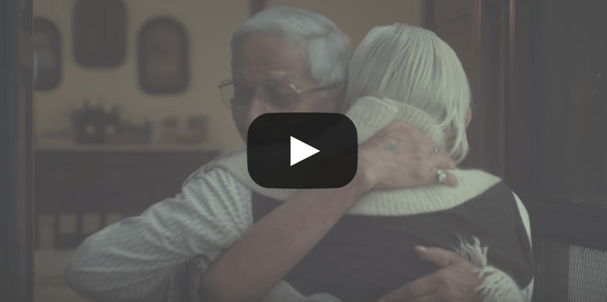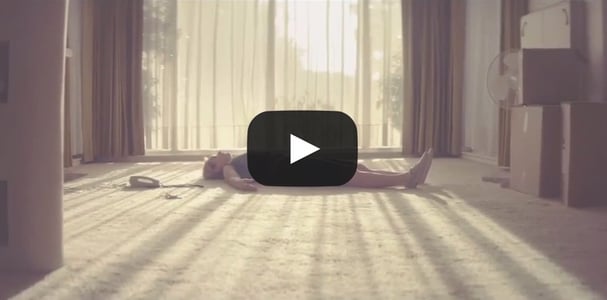
It seems that the famous storytelling or the fact of telling stories (how should be said in Spanish) is a fashion that a wise marketer invented a few years ago, this speeded up the way we create content marketing or public relations.
But the reality is that human beings have been telling stories practically from the very beginning, and of course, long before words were created.
For more than 27,000 years, humans communicate only through drawings, telling stories, and throughout our existence we have been attracted to them simply because of emotions, and stories and emotions sell: studies show that positive emotions towards a brand have much more influence on consumer loyalty than trust and other judgments based on attributes.
Besides, advertising research indicates that emotional responses to an ad have much more influence on purchase decisions than the content per se: 3 to 1 on TV and 2 to 1 in print ads.
Why is storytelling important?
The digital era demands to create connections between clients and brands in order to succeed in public relations and the best way to do it is with a narrative.
Regarding this, the public relations expert Robin Thornton said:
"Storytelling is important because it allows us to speak to an audience in their language, and full of relevant information, making our story to sound loud and become known."
Likewise, stories increase the chances that the viewer will remember what they are sharing on social media.
To sum up, always, and I mean ALWAYS, we will enjoy a good story, whether if it’s told by a good friend or we find it in a movie or book. I think this happens to all of us, it doesn't really matter if it's the nth time our grandmother tells us the same story, we are still excited.
Why are we always captive with a good story?
Traditional advertising sells us things by telling us the characteristics or advantages of the product and then invites us to buy it. It's like one of those boring classes where the teacher gives the class using a PowerPoint presentation full of bullets and long texts. Sooner or later we will get bored because the brain is only translating words into meaning. The situation is even worse when it's about a repetitive message, as in the traditional advertising case.
In contrast, what happens when we use storytelling to give a message? It turns out that, according to a group of Spanish researchers, other parts of the brain are activated (not only the language area). For example, words like "cinnamon", "cookie" or "chamoy" activate not only the areas of the brain that give meaning to what we read but also those that control the smell and taste (don't you feel like having some right now?).
When we listen to a story, it's likely that the protagonist (through the narrator) transmits to us what he/she sees, feels, listens, touches, smells, etc. This causes our brain to activate in several areas simultaneously, work more and, therefore, remember more.
Another example, what happens when we read the following sentences? "The singer had a sensual voice" or “that woman has silk hands”. Did you hear the singer? Did you feel that woman's hands on your skin? When we use sensorial adjectives in our stories, it is inevitable to provoke sensations in those who read it, see or listen it. The stories have the power to put our entire brain to work. The previous is not everything.
Storytelling shapes our reality.
The stories we hear allow us "to get in someone else's shoes", as it is said colloquially. This means that the narrator transmits us what he lives thanks to the use of details and adjectives. In other words, it lets us see a different reality from ours, we feel what he/she feels because our brains are synchronized.
When we tell things that have helped us form our way of thinking or acting to others, we can create the same effect in them. Imagine that your best friend is going into surgery and is afraid of it because he/she does not know what to expect and thinks he/she is going to die. Then you tell him/her that you went through exactly the same surgery and that nothing is going to happen, you give him/her details of the process and you help him/her be more relaxed. In other words, you totally changed the perception of his/her reality, you offered a different feeling and inserted it into his/her brain. You can make others experience everything you've experienced, obviously not in real life, but in their brain.
We are telling stories all the time
Our brain structures the information through narrations. It does it all the time, when we are awake and, of course, when we dream. The way we think is composed of simple cause and effect premises. When we wake up in the morning, we think about our history that day, this means, what we will do during the day. When we listen to another person, we try to anticipate their words and recreate in our mind what he/she is telling us. When we talk to ourselves, we tell ourselves histories. Every interaction has an approach, a climax, and an outcome.
In this way, every time we hear a story we want to relate it to our experiences, that's why metaphors work so well since our brain is making connections between the stories we hear and our real experiences all the time because that way we can understand better the concept.
Top 3 successful ads were storytelling was applied
1. Google Search: Reunion
Today, looking for something in Google is something so common and banal that goes unnoticed in our lives. But in 2013, the company decided to give an intimate meaning to the searches by telling us a touching story about two friends separated by a border separation and at the end they meet each other many years later thanks to this search engine.
Needless to say that all the brain areas are activated by the simple fact of watching a hug between the two friends, right?
2. Weight Watchers: Awaken Your Incredible
There are many reasons behind the desire of losing weight, and these usually have to do with health and aesthetics, but they are very cliché. However, Weight Watchers (a company dedicated to making people lose weight) rephrase the concept by the idea of "being the best version of ourselves". And who doesn't want to be the best version of oneself? It doesn't matter if you are skinny, with big muscles, fat, rich or poor: we all want to be better and get up from our falls. We can see this in a girl story, starting from her birth and going through several moments, including several very sad moments.
Lo mejor es que jamás se habló de pérdida de peso en el video.
3. Nike: The Chance
Nike is an expert in telling things and has evolved in its way of doing it over the decades. From his spokesman was Michael Jordan himself (with the importance of his presence and his personal history), to this short film/commercial narrated by Spike Lee that in a few seconds tells us that we can achieve everything we want, as long as we fight for it (and of course using Nike).
Videos are a certain way to activate our brain. They have many tools (sound, image, narrative) to make us feel what we see and fell identify with it, even if it is not exactly in the same circumstances since we can carry the anecdote to our own reality and experience.
CONCLUSION
Storytelling is one of the most powerful techniques which humans use to communicate and motivate each other. Therefore, it is a certain to make the messages of your brand arrive in an organic and permanent way to your audiences. However, it is not enough to have a good story, you have to know how to tell it. For this, we can help you with our guidance. Come with us and we will make your idea come true.
SOURCES
https://www.cision.com/us/2014/10/12-ways-to-improve-your-digital-storytelling/



.jpg?width=607&name=maxresdefault%20(1).jpg)
